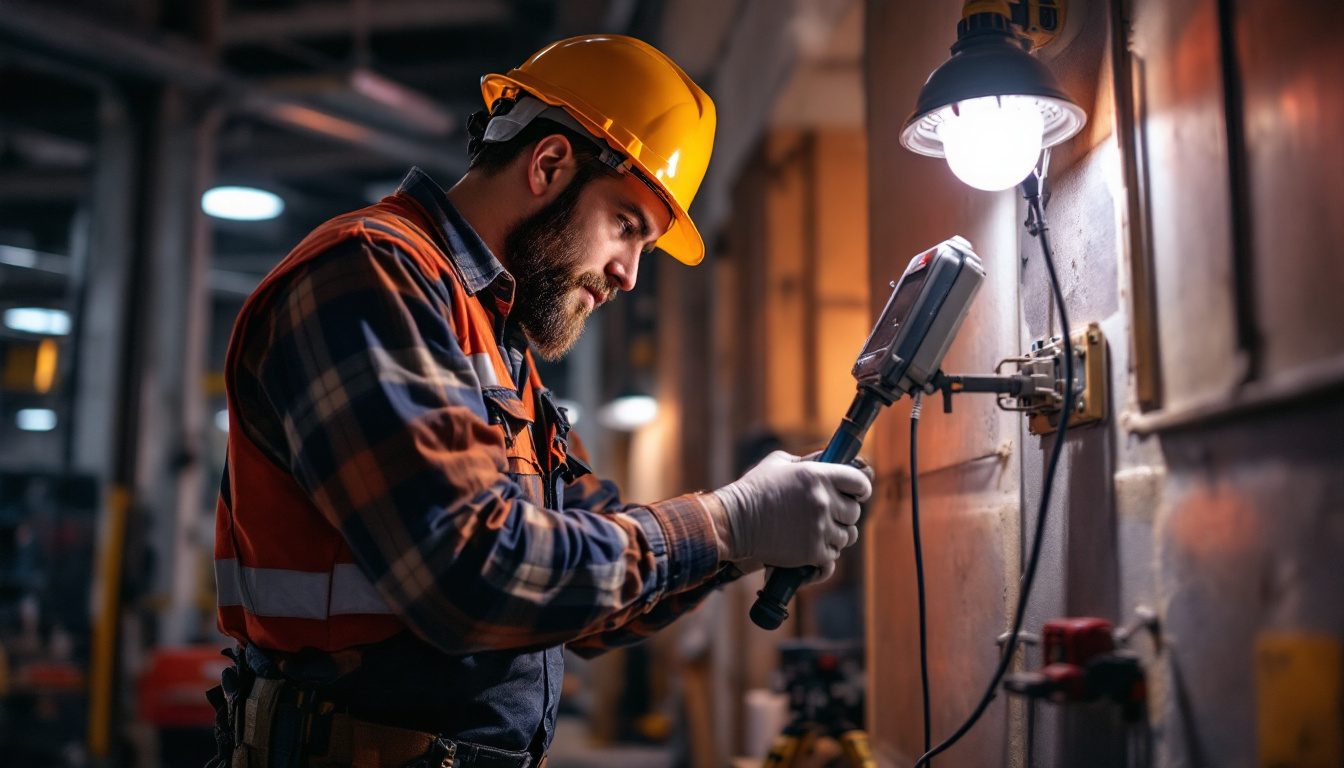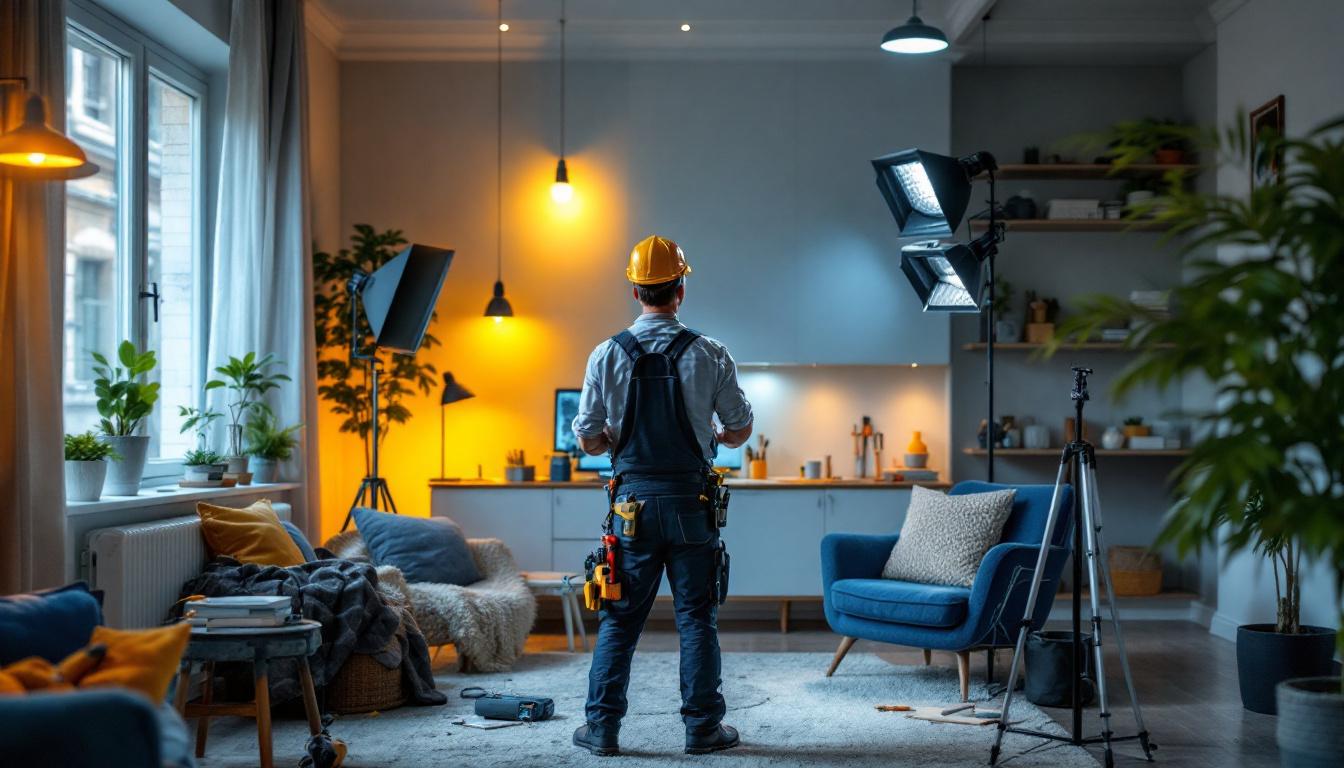
Lighting plays a crucial role in the functionality and aesthetics of automotive shops. For lighting contractors, understanding the nuances of automotive shop wall lights can lead to significant cost savings, both for themselves and their clients. This article explores various strategies that can help lighting contractors optimize their approach to automotive shop lighting, ensuring efficiency and effectiveness in their projects.
Proper lighting in automotive shops is not merely a matter of visibility; it directly impacts productivity, safety, and the overall customer experience. In environments where precision is key, such as auto repair and maintenance, inadequate lighting can lead to errors, accidents, and decreased employee morale. The right lighting can illuminate intricate details, allowing technicians to spot issues that may otherwise go unnoticed, thus ensuring that repairs are both thorough and accurate.
Moreover, well-lit spaces enhance the aesthetic appeal of the shop, making it more inviting for customers. This can lead to increased business as satisfied customers are more likely to return and recommend the shop to others. A bright, clean, and well-organized environment not only reflects professionalism but also instills confidence in customers regarding the quality of service they can expect. Therefore, investing in quality wall lights is essential for any automotive shop, as it serves as a beacon of reliability and trustworthiness.
Lighting contractors must also consider safety regulations and compliance standards when designing lighting solutions for automotive shops. Proper illumination helps prevent accidents, ensuring that employees can work safely and efficiently. For instance, well-lit work areas reduce the risk of trips and falls, while illuminated pathways guide employees and customers alike, minimizing hazards. Additionally, adhering to local codes and regulations regarding lighting can prevent costly fines and enhance the shop’s reputation. Regular audits of lighting conditions can also help maintain compliance and ensure that safety standards are consistently met, fostering a culture of accountability within the workplace.
In today’s environmentally conscious market, energy-efficient lighting solutions are not just a trend; they are a necessity. By utilizing LED technology and other energy-efficient options, lighting contractors can help automotive shops reduce their energy consumption significantly. This not only lowers operating costs but also aligns with sustainability goals, appealing to a broader customer base. Furthermore, energy-efficient lighting often comes with longer lifespans and reduced maintenance needs, allowing shop owners to focus more on their core business rather than upkeep. The integration of smart lighting systems, which can adjust based on natural light levels or occupancy, further enhances energy savings, making it an intelligent choice for modern automotive businesses.
When it comes to selecting wall lights for automotive shops, there are several options available. Each type of lighting has its advantages and disadvantages, and understanding these can help contractors make informed decisions that align with their clients’ needs and budgets.
Wall-mounted lighting fixtures can vary widely in terms of design, functionality, and energy efficiency. Common types include fluorescent lights, LED fixtures, and high-intensity discharge (HID) lights. Each type has its own set of characteristics that can affect both installation costs and long-term maintenance expenses.
LED lights, for example, are known for their longevity and low power consumption, making them a popular choice among contractors. While the initial investment may be higher than traditional fluorescent lights, the long-term savings on energy bills and replacement costs can make them a more economical option in the long run. Additionally, many LED options are available in various color temperatures, allowing shop owners to choose a lighting scheme that enhances visibility and creates a more inviting atmosphere for both employees and customers.
The placement and design of wall lights are critical factors that can influence the effectiveness of the lighting scheme. Properly positioned fixtures can eliminate shadows and ensure even illumination across work areas. Lighting contractors should consider the layout of the shop, the height of the ceilings, and the specific tasks being performed in different areas.
Incorporating adjustable fixtures or task lighting can also enhance flexibility, allowing workers to direct light where it is needed most. This adaptability can improve productivity and reduce the likelihood of errors during repairs and maintenance. Furthermore, the aesthetic appeal of the fixtures should not be overlooked; modern designs can complement the overall look of the shop, creating a professional environment that reflects the quality of work being performed. Utilizing dimmable options can also provide additional control over the lighting levels, catering to different tasks or moods throughout the day, which can be particularly beneficial during busy hours or when conducting detailed inspections.
Moreover, considering the color rendering index (CRI) of the lighting is essential, as it affects how accurately colors are perceived under artificial light. A higher CRI rating ensures that workers can see the true colors of automotive paints and components, which is crucial for quality control and customer satisfaction. By investing in high-CRI lighting solutions, shop owners can enhance the overall working experience, leading to better outcomes and potentially higher customer retention rates.
Implementing cost-saving strategies is essential for lighting contractors aiming to maximize their profitability while delivering high-quality solutions to automotive shops. Here are several approaches that can help achieve this goal.
One of the most effective ways to reduce costs is through bulk purchasing. Lighting contractors can negotiate better prices with suppliers when buying in larger quantities. Establishing strong relationships with manufacturers and distributors can also lead to exclusive discounts or early access to new products, further enhancing cost savings.
Additionally, contractors should consider diversifying their supplier base. By comparing prices and product offerings from multiple sources, they can ensure they are getting the best deals available, ultimately passing those savings on to their clients.
As previously mentioned, energy-efficient lighting options can significantly reduce operating costs for automotive shops. Lighting contractors should prioritize recommending LED fixtures and other energy-saving technologies to their clients. While the upfront costs may be higher, the long-term savings on energy bills and maintenance can be substantial.
Furthermore, many utility companies offer rebates and incentives for businesses that upgrade to energy-efficient lighting. Contractors should stay informed about these programs and help their clients take advantage of available incentives, further enhancing the cost-effectiveness of their lighting solutions.
Investing in durable, high-quality lighting fixtures can lead to significant savings over time. Although cheaper fixtures may seem appealing initially, they often require more frequent replacements and repairs, increasing overall costs. By selecting robust products designed for the rigors of an automotive environment, contractors can minimize maintenance needs and enhance client satisfaction.
Moreover, educating clients about the importance of investing in quality lighting can help justify higher initial costs. Providing case studies or examples of successful installations can illustrate the long-term benefits of choosing durable fixtures.
Ultimately, the success of any lighting project hinges on client satisfaction. Lighting contractors should prioritize understanding their clients’ needs and preferences throughout the design and installation process.
Before proposing a lighting solution, contractors should conduct comprehensive assessments of the automotive shop. This includes evaluating the existing lighting conditions, understanding the specific tasks performed in different areas, and discussing the client’s goals and budget constraints.
By taking the time to gather this information, contractors can tailor their recommendations to meet the unique needs of each shop, resulting in a more effective and satisfying lighting solution.
After the installation is complete, ongoing support is vital for maintaining client relationships. Lighting contractors should offer maintenance services or check-ins to ensure that the lighting continues to meet the shop’s needs over time. This proactive approach can lead to repeat business and referrals, ultimately contributing to the contractor’s long-term success.
The lighting industry is constantly evolving, and staying informed about emerging trends can help contractors remain competitive. Understanding these trends allows contractors to offer innovative solutions that meet the changing needs of automotive shops.
Smart lighting systems are becoming increasingly popular in various commercial settings, including automotive shops. These systems allow for remote control and automation of lighting, enabling shop owners to adjust lighting levels based on occupancy or specific tasks.
Incorporating smart technology can enhance energy efficiency and provide additional convenience for shop owners. Lighting contractors should explore partnerships with smart lighting manufacturers to offer these advanced solutions to their clients.
Another trend gaining traction is the integration of lighting design with overall shop aesthetics. Automotive shops are increasingly focusing on creating a cohesive brand image, and lighting plays a significant role in this effort. Contractors should consider how lighting can complement the shop’s design and branding, creating a more inviting and professional atmosphere.
For lighting contractors, understanding the intricacies of automotive shop wall lights is essential for delivering effective and cost-efficient solutions. By evaluating lighting options, implementing cost-saving strategies, and prioritizing client satisfaction, contractors can enhance their service offerings and build lasting relationships with automotive shop owners.
As the industry continues to evolve, staying informed about emerging trends and technologies will be crucial for maintaining a competitive edge. By embracing innovation and focusing on quality, lighting contractors can ensure their clients receive the best possible lighting solutions, ultimately leading to greater success in their projects.
Ready to elevate your lighting projects while keeping costs down? LumenWholesale is your go-to source for spec-grade lighting products that meet the highest industry standards. Say goodbye to inflated markups and hello to superior lighting solutions at wholesale prices. With our extensive selection, free shipping on bulk orders, and commitment to quality, you can confidently provide your clients with the best lighting options for their automotive shops. Don’t compromise on quality or value—choose LumenWholesale for your next project. Discover our unbeatable deals and experience the convenience of shopping with us by visiting Wholesale Lighting at the Best Value.

Discover the top benefits of solar-powered flood lights for lighting contractors, including cost efficiency, sustainability, and ease of installation.

Illuminate your front yard with expert insights from lighting contractors.

Discover the essential insights every lighting contractor needs about emergency ballasts.

Discover the essential checklist for lighting contractors with “Driver Light.” This comprehensive guide covers everything from project planning to installation, ensuring seamless and efficient lighting solutions for any space.